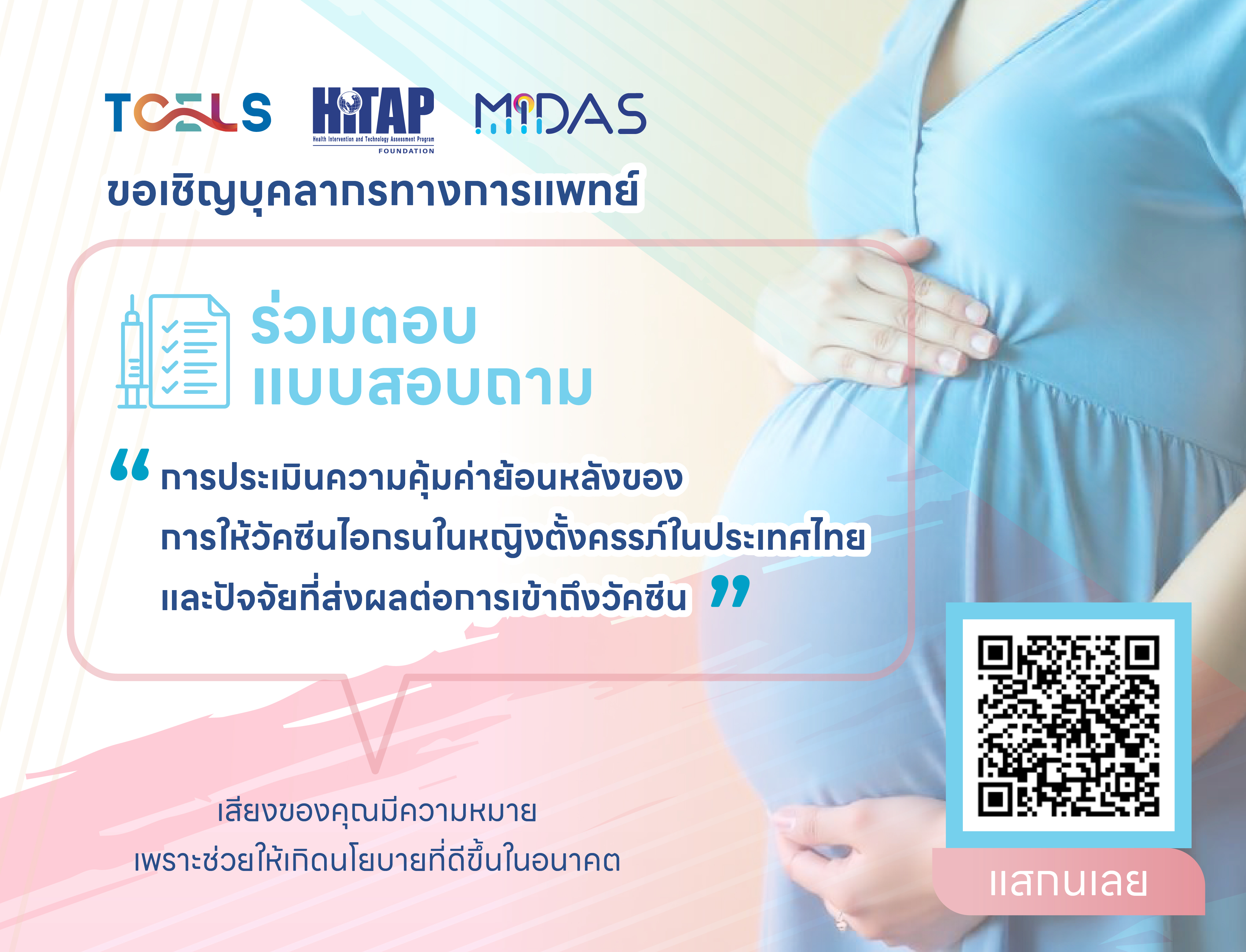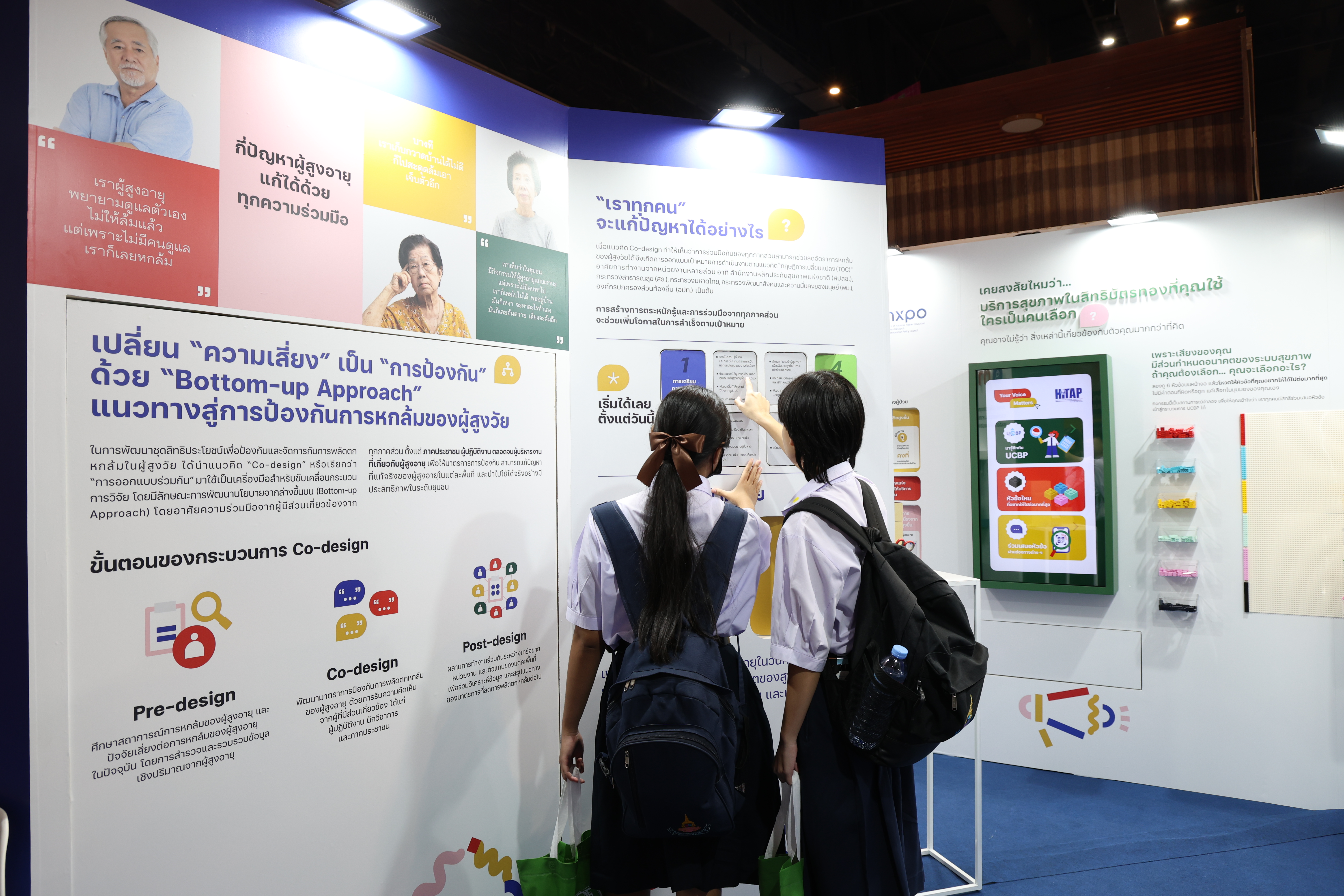ขอเชิญบุคลากรทางการแพทย์ร่วมตอบแบบสอบถาม “การประเมินความคุ้มค่าย้อนหลังของการให้วัคซีนไอกรนในหญิงตั้งครรภ์ในประเทศไทย และปัจจัยที่ส่งผลต่อการเข้าถึงวัคซีน”




PMAC 2016 Side Event (SE 026): Making decision makers accountable: better journalism – better chances of getting to Universal Health Coverage
This workshop will bring together journalists, bloggers and editors from around the world to share stories of reporting countries’ journey towards and efforts to sustain Universal Health Coverage. The session will include components around the principles of priority-setting, cost-effectiveness, and health technology assessment (HTA). Furthermore, it will have interactive sessions to reflect on the challenges, good and bad practices in the reporting of priority-setting through sharing of experiences from different settings and discussions about tangible next steps.
Date: Tuesday 26 January 2016, 09:00 –16:45 (including lunch and coffee breaks)
Place: Lotus Suite 6, Floor 22, Centara Grand & Bangkok Convention Center, Bangkok
Type of side event: By invitation only
Speakers and moderators
Background
Every health dollar can only be spent once. As an increasing number of low- and middle-income countries commit to universal health coverage (UHC; UN adopts ‘momentous’ resolution on universal healthcare, The Guardian, 13 Dec 2012), there is a growing recognition by governments and other stakeholders in respective health systems of the need to set priorities explicitly for spending hence making the most of limited resources, in order to achieve and sustain the objectives of UHC (Center for Global Development Report: http://www.cgdev.org/working-group/priority-setting-institutions-global-health). The competing claims of different stakeholders against a finite budget lie at the crux of priority-setting in health, and in many countries the media yield significant power in influencing how these claims are to be understood by the general public and acted upon by policymakers.
While the role of the media varies from country to country, there will be technical, political and ethical issues around priority-setting common that are shared across settings, as well as generalisable principles for understanding and communicating such notions as priority setting, rationing and fair access to services, of relevance to journalists and editors worldwide.
We shall aim to use this side meeting, bringing together journalists, bloggers and editors from around the world, to share our stories of reporting countries’ journey towards and efforts to sustain UHC.
Session Objectives
1. To increase understanding of:
2. To understand existing efforts for the networking and capacity-building of health/science/development journalists, and inform next steps in building such efforts, with the ultimate aim of improving journalistic reporting of priority-setting in health, globally, regionally and at individual country levels.
Session overview
The workshop will include:
Pre-workshop task for participants
Please bring along any relevant stories you have covered in your country that you would like to share during the workshop. In particular, try to prepare examples around healthcare interventions that appear to be unaffordable, with the following issues in mind:
Organisers
Contact persons:
Dr Ryan Li, Adviser, NICE International
Tel: +44 (0)7748 703 693
Email: [email protected]
Chalarntorn Yothasmutra, Head of Communication unit, HITAP
Email: [email protected]
| Agenda of SE 026 Making decision makers accountable: better journalism – better chances of getting to Universal Health Coverage | 18 กันยายน 2025 | Download |